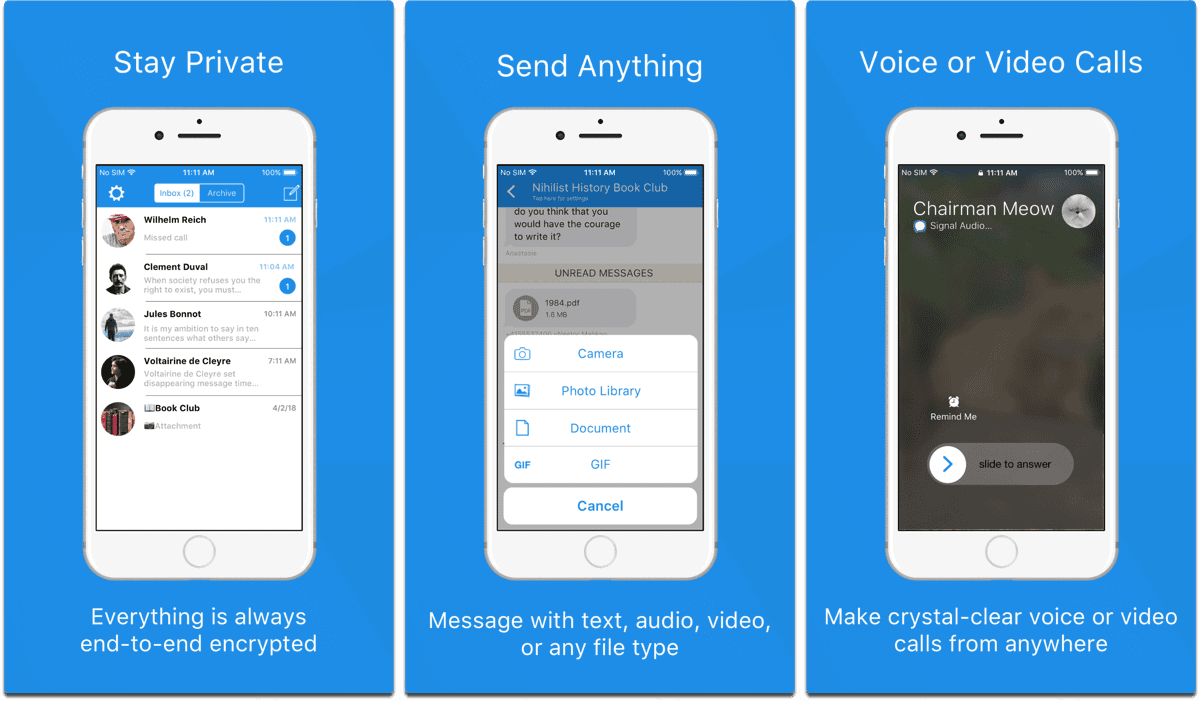

A Meta spokesperson said the timing of updates was unrelated. In her piece, Davis noted the “ongoing debate about how tech companies can continue to combat abuse and support the vital work of law enforcement if we can’t access your messages.” She said the company was “engaging with privacy and safety experts, civil society and governments to make sure we get this right.”ĭays after the Nebraska news this week, Meta announced it would start testing default end-to-end encryption for Facebook Messenger as well as a “secure storage” option for encrypted messages on Facebook. In April 2021, a Facebook executive said the company wouldn’t be able to implement end-to-end encryption by default across all its products until “sometime in 2022 at the earliest.” Seven months later, another Facebook executive, Antigone Davis, penned an op-ed piece in a British publication revealing the option wouldn’t be available “until sometime in 2023.”įacebook, along with other tech companies, has long had to contend with pressure from government officials around the world over making messages accessible to law enforcement agencies in order to prevent bad actors from using their platforms for illegal activities. In recent years, Meta has worked to expand and improve its encryption options for its other services. Meta’s mobile messaging platform WhatsApp already offers default end-to-end encryption, as well as encrypted backups of users’ messages. Facebook’s evolving approach to encryption Meanwhile, Edward Snowden favors an encrypted messaging app called Signal.“The end of Roe throws into sharp relief the paramount importance of turning on by default instead of making users navigate security and privacy settings for themselves,” said Rianna Pfefferkorn, a research scholar at the Stanford Internet Observatory whose work focuses on encryption.įacebook’s long road to accomplishing that, however, highlights the broader challenges facing the industry and the tradeoffs between privacy and convenience that companies and users increasingly have to make. The Islamic State reportedly used Telegram, which offers a questionable level of encryption.

Popular messaging app Line, for example, rolled out an end-to-end encryption feature called “ Letter Sealing” in October 2015. Wire is far from the first messaging app to tout its encryption features, though it claims that its approach is the most comprehensive. The startup has about 50 employees, and while it doesn’t share monthly user figures, a March Bloomberg Business report cites that Wire receives about 150,000 to 200,000 new user sign-ups per month. “Your data is your data - Wire has no access to it.”
WIRE FOR MAC DECRYPTING MESSAGES SOFTWARE
“Wire doesn’t hold the decryption keys and our software contains no backdoor,” according to the company’s website. Wire launched in December 2014 and allows users to make end-to-end encrypted voice and video calls, and also features end-to-end encrypted text messages, photos, and sketches.
WIRE FOR MAC DECRYPTING MESSAGES ANDROID
One handy feature is the ability to set a “compromise” location, so that everyone can meet in a place that’s convenient rather than trying to find each other. Unfortunately, the whole location-sharing function is only available on the Android version for now, but it will be rolling out to iOS, and the web “soon.” The highlight, though, is the app’s ability to share a user’s location. The Switzerland-based company behind the app has been adding new features over the past few weeks, such as the ability to customize sound notifications the ability to copy and past images from other apps into your conversations Brazilian-Portuguese translations and content forwarding. In fact, Wire made all of its conversation content end-to-end encrypted months before WhatsApp flipped the switch - OK, so Wire doesn’t have one billion users but, hey, it counts. Wire is backed by Skype co-founder Janus Friis, and is a competitor to the likes of WhatsApp and Telegram. Jumping on the bandwagon, end-to-end encrypted messaging app Wire now lets you share your location with your contacts. If messaging apps have their way, you’ll never have to ask someone where they are.


 0 kommentar(er)
0 kommentar(er)
